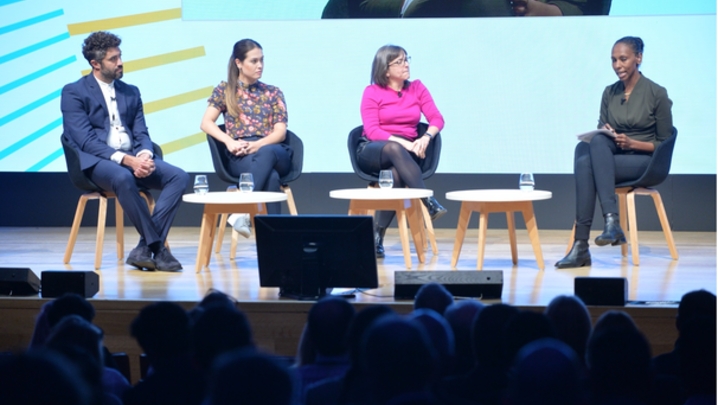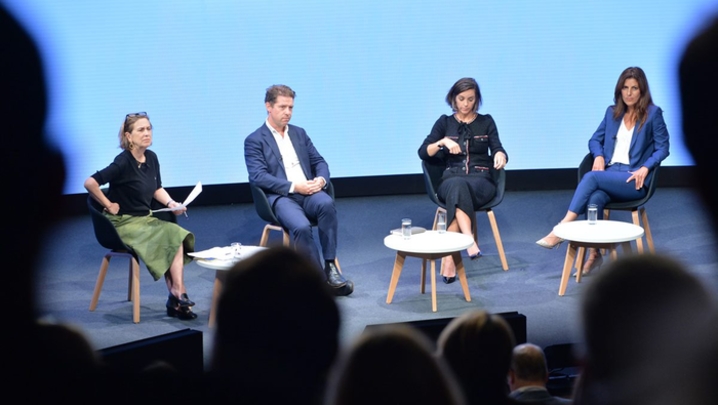Simon Bucks examines the challenges facing the news giant’s new CEO, Mark Thompson
Chicken Noodle Network, they mocked, when CNN launched on a wing and a prayer almost 44 years ago. It was a revolutionary and, many thought, crazy idea: TV news, 24/7. The all-powerful US networks were confident that this upstart rival, thinly resourced and prone to on-air gaffes, wouldn’t last six months.
Instead, of course, it grew into an important and influential global news machine generating huge profits for its founder, Ted Turner, and a $7.3bn shares payday when he sold to Time Warner.
Today, the CNN picture is less rosy for its newly merged owners, Warner Bros. Discovery (WBD). Ratings, revenue and profits are all down, due to increased cord-cutting, the proliferation of social media news and a challenging TV advertising market.
CNN’s specific problems are a string of well-publicised internal crises, a digital strategy (and, indeed, digital technology) that needs radical rebooting, and uncertainty about its place in the US’s polarised political TV landscape, defined by Fox News on the right and MSNBC on the left.
Nevertheless, CNN remains a formidable video newsgathering organisation globally, alongside the BBC. Little surprise, therefore, that the corporation’s former Director-General Mark Thompson, newly knighted, was hired to breathe fresh life into the behemoth, its third CEO in less than two years.
Commentators agree that, while 2024 will test CNN’s new leader, it will also bring opportunities.
WBD’s boss, David Zaslav, is hoping Thompson can replay his New York Times success, massively expanding its digital subscription business and transforming it into a lifestyle product with new content, including recipes and puzzles.
“He can’t just repeat what he did at the New York Times, taking an upmarket newspaper and delivering a new digital strategy. That’s not going to work for CNN because the brand, the culture, are completely different,” says Nic Newman, Senior Research Associate at the Reuters Institute for the Study of Journalism, who worked with Thompson on digital transformation at the BBC. “What Mark is good at is cutting through, seeing beyond the way things work today, and having a vision for how things can be different without losing the heart of what you’re about.
“He is able to see through this fog of change, and provide a clear direction and bold strategy that is relevant to a broadcaster with a great heritage and brand.”
“He is one of the very few people who might be able to pull it off,” agrees Richard Sambrook, the former Director of BBC News, who also knows Thompson well. “He has a unique combination of very high-level editorial and business skills. Plus, he is as tough as a rhino and relishes difficult problems.”
Thompson has been arguing for some time that American TV news is on life-support. It was, he told a Freeview Outside the Box event in 2021, “Completely unchanged since the 1980s, old-fashioned and aimed entirely at older audiences. It’s in dead trouble”.
So, it can’t have been a shock to staffers when he warned that CNN could no longer be defined by linear TV, the platform on which it built its reputation. Most people under retirement age now consume news on their mobile phones, he said in a video message to staff. Moreover, he added, CNN’s digital platforms are technologically years out of date.
A recently departed CNN News executive confirms: “The digital staff say the kit and the systems they’re using are not fit for purpose. They are old-fashioned and just not up to the standard they should be. Videos are slow to load, and you can never find anything except through Google.”
Thompson will need time and investment to fix it. Insiders assume that’s already agreed, but Claire Enders the founder of Enders Analysis, who saw Thompson shortly after he took over, notes that WBD is burdened by $45bn of debt, soon to be aggravated by higher interest rates. Plus, it has forecast revenue losses of up to $500m thanks to the Hollywood strikes.
Thompson is already contemplating cost-cutting measures including joining forces with other broadcasters to share resources on the ground, according to Enders. But she insists: “Mark is an optimist. He really believes he can grow the website revenue from advertising and sponsorship.”
“It’s going to be hard,” says John Ryley, who, as Head of Sky News for 17 years, masterminded its digital transition. “Television makes money, digital doesn’t make nearly as much. So, he’s got to try to move the centre of gravity, to dial down the TV and dial up digital – but still ensure that sufficient TV money is coming in.”
WBD’s current big digital idea for CNN, predating Thompson, is to bundle news into Max, its renamed streaming platform. The previous streaming venture, CNN+, ended badly. Warner Media launched it just before the merger with Discovery and against the advice of the incoming regime, which promptly scrapped it.
The problem, explains the former CNN editorial executive, is that legacy – but still valuable – carriage deals handicap it from streaming the rolling output wholesale. WBD is taking this on, scheduling some CNN linear channel programming on Max, including shows presented by big names such as Jake Tapper and Anderson Cooper. One of the largest distributors, DirecTV, has already warned WBD it risks violating their agreements.
Lawsuits loom, but if Thompson and Zaslav can overcome them, there’s some evidence that online platforms can recoup lost linear revenue. John Ryley believes CNN on Max will deliver additional value: “It’s the old five-pound note analogy. News is that thin strip of metal in the note which validates the brand, giving it credibility.”
Thompson’s other big question is over CNN’s editorial identity, the issue that has divided and debilitated the station. The last-but-one boss, Jeff Zucker, led an acrimonious and high-profile editorial pursuit of Donald Trump during his presidency. Zucker insisted CNN wasn’t anti-Trump but “pro-truth” but was eventually ousted, ostensibly for an undisclosed office relationship.
His unpopular successor, Chris Licht, reset the channel in the ideological middle, but a disastrous Trump “town hall” show finished him, too.
Now Thompson must decide where CNN sits politically. Fox News’s right-wing stance serves it well commercially, securing 2022 revenue of $3.3bn – up 5% on the previous year – while CNN ($1.8bn) and the-left leaning MSNBC ($903m) both saw earnings fall.
Few expect Thompson to be tempted down the Fox road. Enders says he knows the key is to maintain authority, make no mistakes and, crucially, in his own words, avoid getting on the wrong side of the culture wars.
Sambrook believes lack of trust, AI and disinformation will underline the value of a few strong news brands such as Reuters and the BBC that are recognised and trusted, and CNN can be one. “But it’s got to get much tighter and more rigorous with its journalism and not get drawn into saying, ‘Wow! It’s a spectacle, let’s run with it.’”
The 2024 US election is a huge opportunity, says Ryley. “It is likely to be the first time a presidential candidate will be running while fighting four court cases. They can monster that story.”
Friends agree that Thompson’s personality will stand him in good stead. They point to his devout Catholicism, sense of mission and a “prehensile self-confidence”. Enders says his most important task will be “getting along with Zaslav”. That shouldn’t be hard, according to a former colleague: “Someone once described Mark as basically a very nice guy, and he wants you to like him. But if you don’t like him, it’s your problem.”




